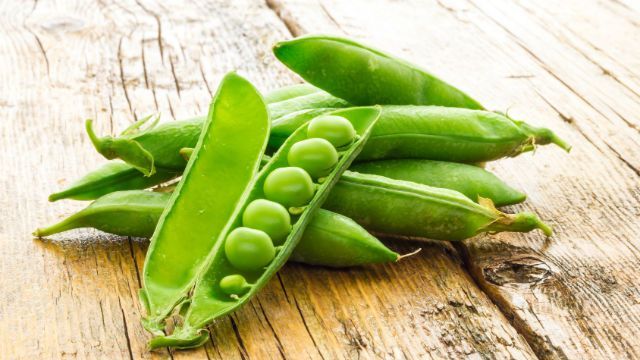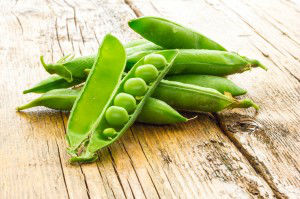
More than one in four women over the age of 65 in the US has been diagnosed with osteoporosis. For someone to be labeled as having this condition, it means they’ve lost 50 to 75 percent of the original bone material from their skeleton, a pretty frightening statistic.
Many people believe that bones only lose calcium if they don’t get enough calcium in their diet. Of course, the National Dairy Council is at the forefront for promoting this point of view, as well as the solution that we all need to drink more milk and consume more dairy products – they’ve spent a significant amount of money ensuring that we all believe this, and it does seem logical.
But Dr. Suzanne Humphries, and many other health and nutrition experts, feel otherwise. Dr. Humphries is disturbed by all of the older women being diagnosed with osteoporosis who are taking supplemental calcium, and even drugs known as bisphosphonates that she believes are harmful approaches. She believes that osteoporosis is actually a “scurvy of the bone.”
Osteoporosis isn’t a disease caused by calcium deficiency, but a disease caused by excessive calcium loss, which means you can take all the calcium supplements you want, but if your diet and lifestyle choices aren’t healthy, or you’re taking prescription drugs that cause you to lose calcium, you’ll still lose more of this essential mineral from your bones than you can get from your diet.
Dr. Humphries says that the “matrix of bone will incorporate calcium and nutrients where they belong as long as the proper hormones and nutrients are present,” and that gravitational force in the form of weight bearing exercise is essential for a healthy skeleton.
Nutrition is also important, but just taking calcium supplements don’t necessarily do the trick. She points out that science is constantly discovering new things about food, its nutrients, and its interactions in the body that we still aren’t aware of. Additionally, getting enough calcium is just a small factor in preventing osteoporosis.
If you think consuming a calcium fortified soda will help, consider that the damage it does to the body far outweighs the benefits of the added calcium. There is also some evidence that refined sugars can even deplete calcium.
On the other hand, getting adequate calcium through the foods you eat is an important part of preventing osteoporosis. Foods like broccoli, snow peas, dark leafy greens including kale and spinach, almonds, beans and yogurt are all rich sources. Milk is actually not the best source because it has a poor calcium to magnesium ratio, and the body needs magnesium in order to ensure calcium gets into the bones.
Dr. Humphries says that a more constructive supplement regimen would consist of vitamin C, vitamin K2, vitamin D3 (in the winter, and sun in the summer) boron, silica and magnesium, which are all much more important for maintaining bone health and preventing fracture than calcium. Excess calcium ultimately ends up in the heart muscles, valves and blood vessels, potentially leading to heart disease, which she has seen firsthand in x-rays.
The recommended calcium allowance for adults aged 19 to 50, and males up to age 70, is 1,000 milligrams per day. For women over the age of 50, the amount is 1,200 milligrams per day. If you aren’t taking a supplement, it would be difficult to consume too much calcium from your diet alone. Over-supplementation with calcium, however, may pose health risks.
Vitamin C helps to mineralize bone and stimulate bone forming cells to grow, as well as preventing too much degradation of bone and dampening oxidative stress. When the body doesn’t get enough vitamin C, the opposite occurs. Studies have shown that elderly patients who fractured bones had a significantly lower level of vitamin C in their blood than those who hadn’t suffered a fracture.
 Vitamin K2 is important for cardiovascular and bone health, while D3 also helps keep bones strong and the immune system properly functioning.
Vitamin K2 is important for cardiovascular and bone health, while D3 also helps keep bones strong and the immune system properly functioning.
Dr. Humphries recommends taking 2 to 5 grams per day of sodium ascorbate as a general supplement, but if you have kidney disease or active kidney stones, be sure to speak with your healthcare provider first.
-The Alternative Daily
Sources:
http://www.mchb.hrsa.gov/whusa11/hstat/hshi/pages/222o.html
http://www.greenmedinfo.com/article/low-levels-serum-ascorbic-acid-elderly-patients-hip-fracture
http://www.greenmedinfo.com/article/vitamin-c-supplement-use-appears-have-beneficial-effect-levels-bmd-especially
http://www.greenmedinfo.com/blog/osteoporosis-scurvy-bone-not-calcium-deficiency?page=2#related-1
http://ods.od.nih.gov/factsheets/Calcium-HealthProfessional/#h2

